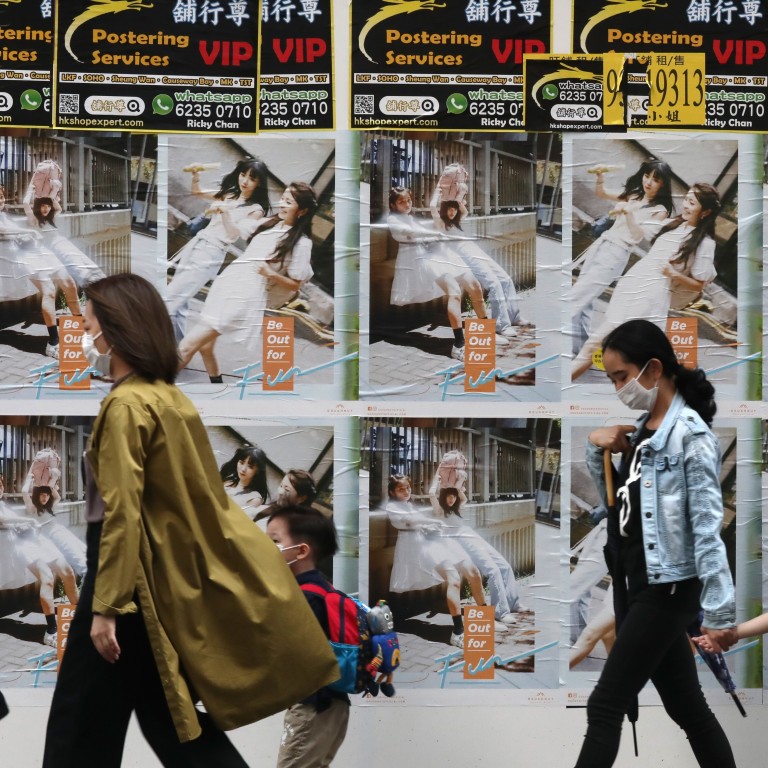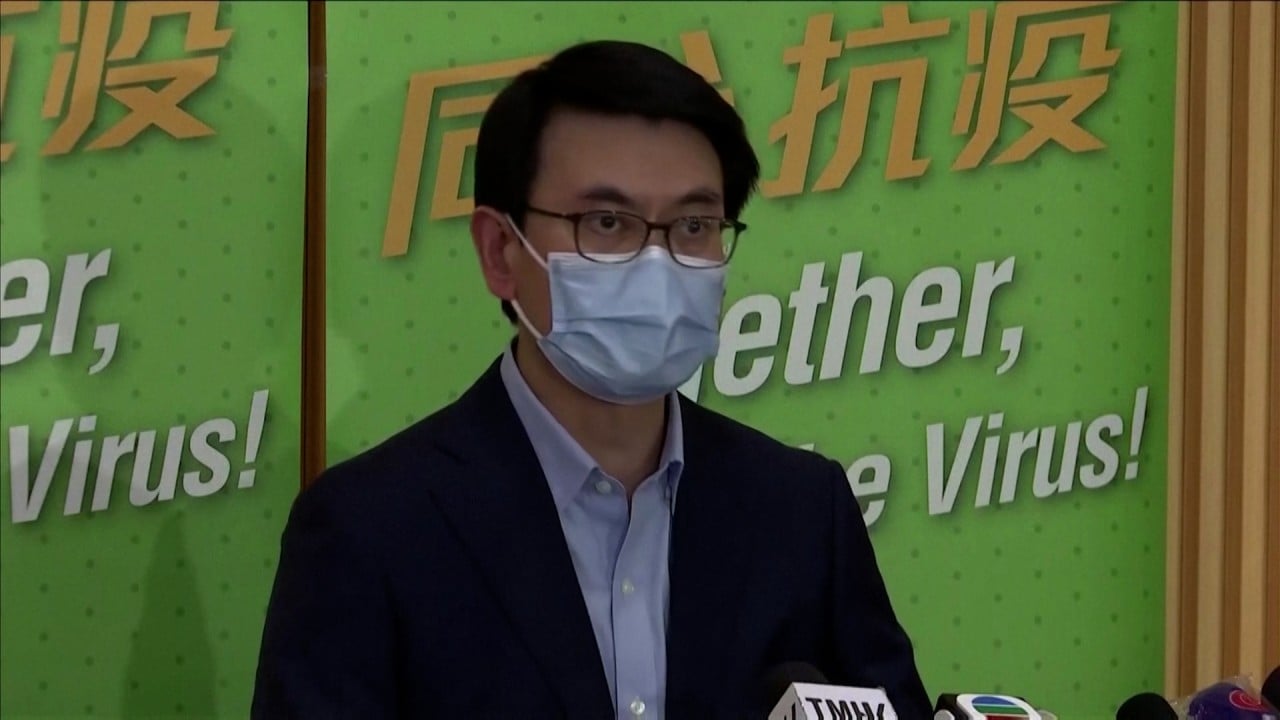
Coronavirus: Hong Kong health minister promises HK$5,000 handouts for low-income residents who test positive
- Sophia Chan says subsidy is aimed at reassuring people concerned about loss of earnings while in quarantine
- Announcement comes as city reports 68 new cases while cluster at dance clubs expands to 80 infections
In a worrying development, 46 of the latest infections were tied to the dance club cluster, taking its total to 80. Health authorities admit containing that outbreak will be difficult and have for the first time ordered mandatory testing, requiring everyone who has visited the venues since the start of the month to be screened.
Secretary for Food and Health Professor Sophia Chan Siu-chee said applicants to the subsidy programme would not be means-tested.
“We hope this subsidy can encourage low-income residents who may be worried about losing their salaries if they have to be quarantined because they are infected to come forward and get tested,” she said. “The main recipients will be people who have tested positive and have a need for the subsidy.”
Jonathan Ho Kai-ming, undersecretary for labour and welfare, called on residents to treat the scheme with respect.
“Based on the number of infections now, I think the expense will not be too big,” he said. “I don’t think people will abuse the measure to get the money. I hope people will treat this seriously and not play around with it.”
Passengers’ hopes dashed as Covid-19 surge puts travel bubble on hold
Ho said details of the programme would be announced this week, but a source warned that drawing a line between residents who needed the handout and those who did not would be a challenge.
“For example, even for people who earn HK$40,000 a month, this HK$5,000 might be helpful too,” he said. “How much administrative money are you going to spend to conduct a means test for this relatively small amount of subsidy? Are you going to ask people to submit documents to prove that they need the subsidy when they are already confirmed to be infected?”
The Labour and Welfare Bureau would discuss the possible public reaction and decide whether adjustments were needed before rolling out the scheme by Tuesday, the insider said.
Government adviser Professor Gabriel Leung warned that authorities must be careful to prevent misuse of the subsidies.
“It must be targeted,” he said. “If you have a stable monthly paid job and your employer is willing to give you paid sick leave, there is no reason to offer additional incentives to you,” said the dean of the medical school at the University of Hong Kong.

Under the mandatory testing order for the dance clubs, patrons have until November 24 to submit the samples. Failure to comply will lead to a HK$2,000 fine. But some health experts expressed concern officials failed to react quickly enough to the cluster, which is the largest since one affecting bars and musicians in March that ultimately involved 103 people.
The order for mandatory testing had come too late to break the transmission chain, warned Dr Gabriel Choi Kin, the president of the Hong Kong Medical Association.
Professor Lo Chung-mau, head of the University of Hong Kong-Shenzhen Hospital, was also critical of the screening measures.
“While mandatory might sound strong, it is actually weak,” he said. “People have two days to hand in their samples. In that time they could still be going out and taking public transport.”
Leung said such the operation of large leisure facilities where people gather, such as dance centres and concert halls, “should be avoided as far as possible” and urged the government to consider suspending classes and allowing employees to work from home.
“As we have to do this sooner or later, should we actively consider implementing these large-scale measures immediately?” he asked.
This is a war against the virus. We’ve beaten the first, second and third waves, but now we are losing to the fourth wave
The government should also increase the number of community testing centres from four to 18, covering every part of the city, according to Leung.
“More than 100 testing centres were opened in the summer for voluntary testing,” he said. “Now maybe we don’t need so many, but can we have one in each district?”
Booths should be set up in every MTR station for the distribution and collection of testing sample bottles. “We must make this as easy as buying a bottle of soda,” he said.
The city’s tally of confirmed infections now stands at 5,628, with 108 related deaths. According to a medical source, the Hospital Authority will reopen AsiaWorld-Expo halls one and two for Covid-19 patients on Wednesday. When Hong Kong was fighting the third wave, nearly 600 patients with mild symptoms were housed in a community treatment facility in hall one, while the second one was equipped with 400 beds.

01:25
Hong Kong-Singapore travel bubble postponed for two weeks
“We need to go back to the source,” said the Medical Association’s Choi. “Where did the fourth wave start? If it is Nepal, then maybe there are problems with the border controls.”
Earlier tests found the most recent strain of the virus spreading in the city had similarities to the one in the Himalayan nation.
Lo, of the University of Hong Kong-Shenzhen Hospital, called for stricter supervision of people entering the city from abroad, such as ensuring they take dedicated transport to specific hotels for quarantine.
“This is a war against the virus,” Lo said. “We’ve beaten the first, second and third waves, but now we are losing to the fourth wave. Why have we not learned from past mistakes and made improvements? Even though there are some improvements, it is not enough.”


